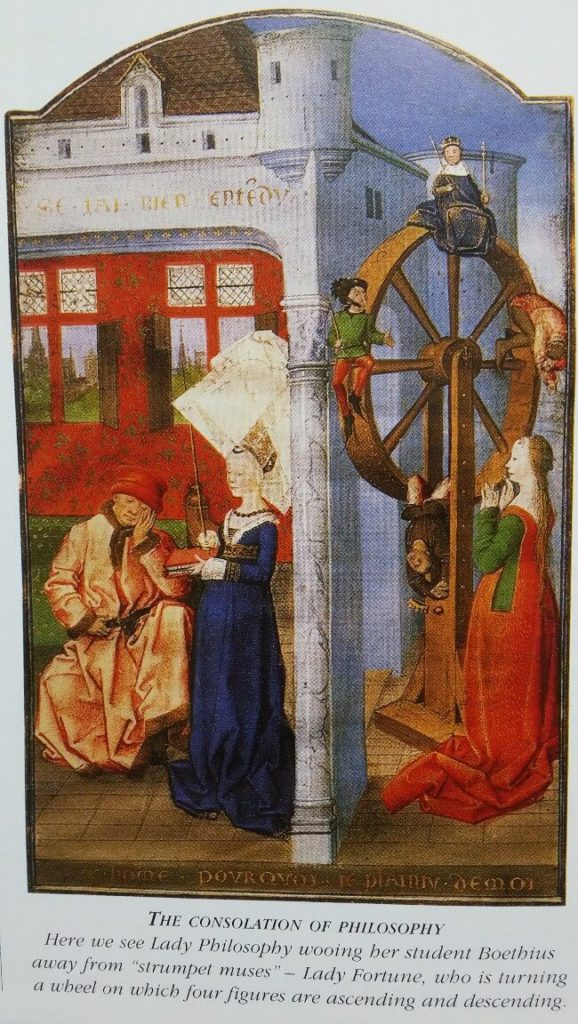The themes of New Testament reading for this the tenth Sunday after Trinity, in which we visit the arcanum of the (10) Wheel of Fortune, have to do with the circular motion of the changes of fortune, whether it be Jerusalem “encompassed” by enemies and cast down to the ground, or Christ casting the sellers and buyers out of the temple and (as Matthew and John add) “overturning” the tables of the money-changers. That episode functions, as it were, as the plot trigger for the ultimate turn of the wheel that leads to the crucifixion, descent into Hell, and glorious resurrection of Christ.
Let it be noted also that the prophecy of the destruction of Jerusalem includes the significant phrase, “because thou knewest not the time of thy visitation.” The text teaches us through the arcana of the (10) Wheel of Fortune of the necessity of becoming open to the gnosis that is offered by the Egyptian Sphynx who appears to visit us when it is actually we who are carried up to him by the Wheel. If we can solve the riddle of the Sphinx we shall be freed from the wheel and from being carried back down to the ground. The gnosis on offer here, therefore is both the gift of foresight, an ability to look into the seeds of time, to anticipate the influx of a new Zeitgeist and the will to act accordingly, as did Noah, for example, or Moses of old, liberating themselves and their people by faith and by great works before the impending transformation of circumstances has made itself manifest to all and sundry through the operations of the goddess Fortuna and her wheel.

Machiavelli On The Cause Of Ruin In Human Affairs
The virtue of Moses and Noah was such that they were enabled by the grace of God to act with peremptory flexibility to change their mode of behaviour and thereby alter and control the course of their destiny and free themselves from the (10) Wheel of Fortune. Machiavelli notes in the 25th chapter of The Prince that it is men’s failure to adapt to changing times that brings about their downfall:
…se uno che si governa con respetti e pazienzia, e’ tempi e le cose girono in modo, che il governo suo sia buono, e’ viene felictando; ma se li tempi e le cose si mutano, e’ rovina, perché non muta modo di procedere.
Machiavelli, The Prince, XXV
if it happens that time and circumstance are favourable to the one who acts with caution and prudence he will be successful, but if time and circumstances change he will be ruined, because he does not change his mode of procedure.
The Collect
Let thy merciful ears, O Lord, be open to the prayers of thy humble servants; and that they may obtain their petitions make them to ask such things as shall please thee; through Jesus Christ our Lord. Amen

Old Testament Reading
Vanity of vanities; all is vanity…
The thing that hath been, it is that which shall be; and that which is done is that which shall be done: and there is no new thing under the sun.
Ecclesiastes 1: 2
New Testament Reading
For the days shall come upon thee, that thine enemies shall cast a trench about thee, and compass thee round, and keep thee in on every side, and shall lay thee even with the ground, and thy children within thee; and they shall not leave in thee one stone upon another; because thou knewest not the time of thy visitation. And he went into the temple, and began to cast out them that sold therein, and them that bought…
Luke 19: 43-45
Liturgical Affirmation
Ego sum lux mundi;
tempus casumque in omnibus sub sole sunt
I am the light of the world; time and chance are in everything under the sun.


